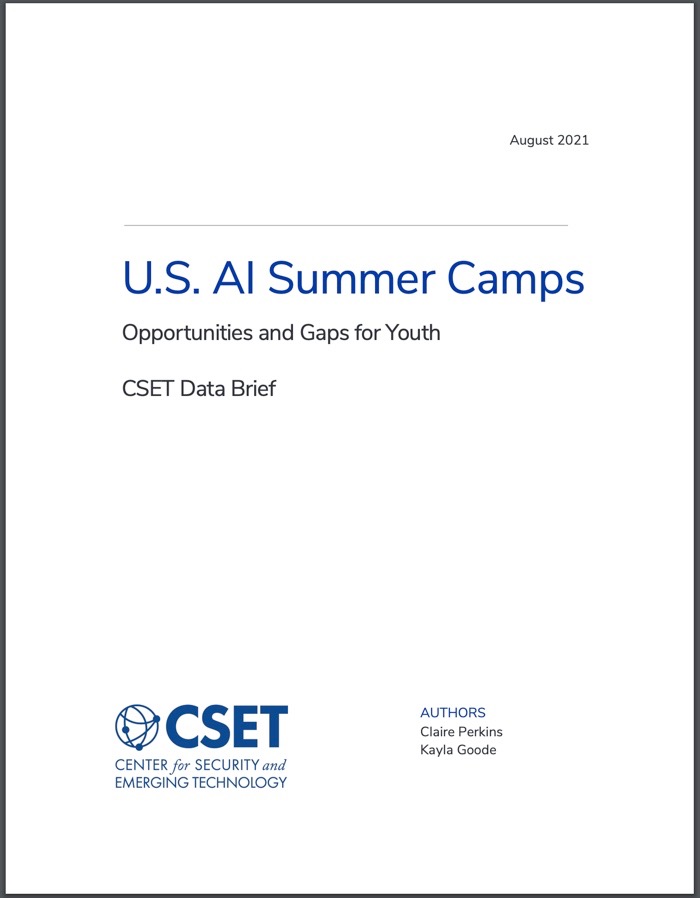Artificial intelligence (AI) education is an increasingly prominent topic in the United States. Educators, industry leaders, and policymakers alike have begun to prioritize AI education initiatives with the goal of maintaining the U.S. workforce’s competitive edge and filling jobs in the technology sector.
However, U.S. AI education may have an overlooked program area: summer camps. In many communities, summer camps are a staple of the educational experiences of primary and secondary (K-12) students. Despite AI education’s prioritization as a national security imperative, little is known about the current offerings of summer camps that specifically focus on AI education for K-12 students.
This brief details the current landscape of AI summer camps in the United States. Using a dataset on AI summer camps collected and curated by CSET, we examine the variation in camp programming, the U.S. states where they operate, which organizations run them, which student populations they target, and their cost.
Our analysis found:
- There are about 450 AI and AI-related summer camps across 48 U.S. states.
- Approximately 53 percent of these camps are concentrated in just 8 states: California, New York, Texas, Colorado, Pennsylvania, Massachusetts, Washington, and Virginia.
- AI summer camps are primarily offered by for-profit organizations, and 49 percent cost more than $750 per student. Just 10 percent of the AI and AI-related camps we found are free, and these are mostly offered by universities and non-profit organizations.
- High school students are the largest target audience for these camps, but more than half target middle and elementary school students as well.
We acknowledge the AI education landscape is evolving—often rapidly—and new programs and curricula will surely emerge as more schools and local governments realize the value of AI education. Nevertheless, our data brief provides a relevant and timely snapshot with information detailing the distribution and accessibility of these camps for U.S. K-12 youth.
